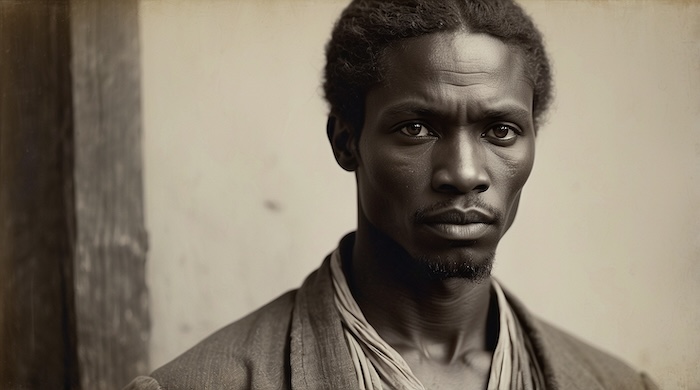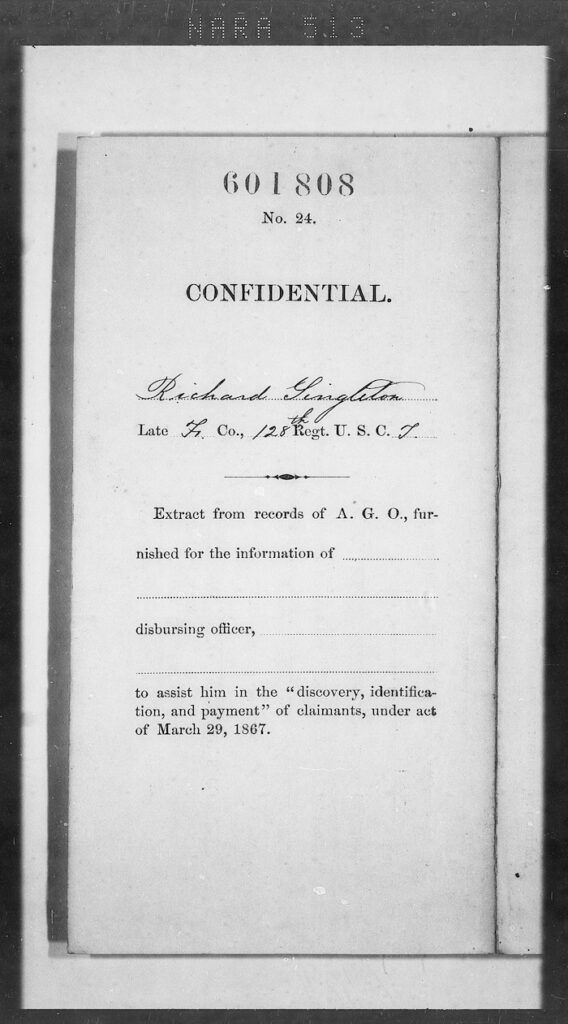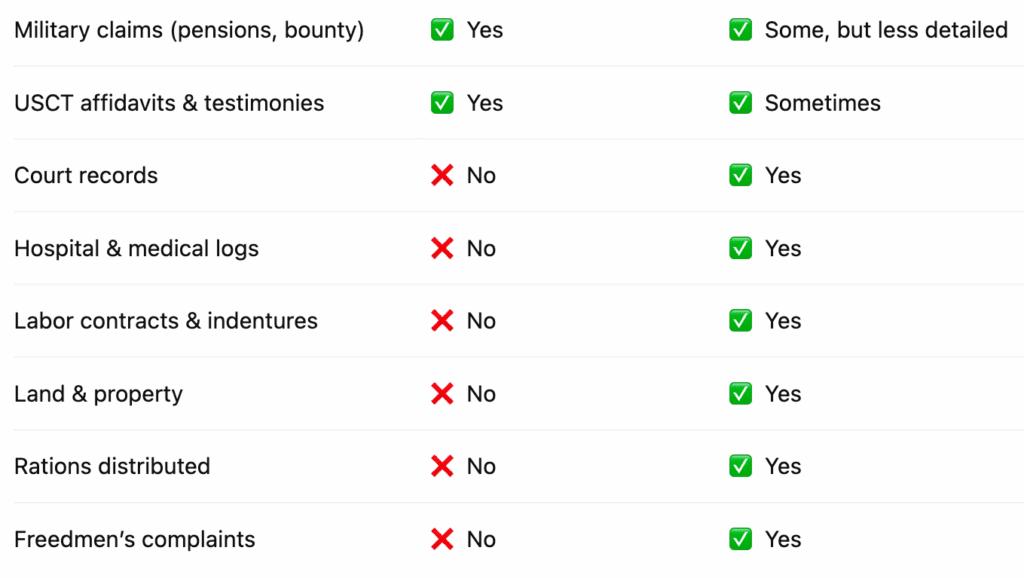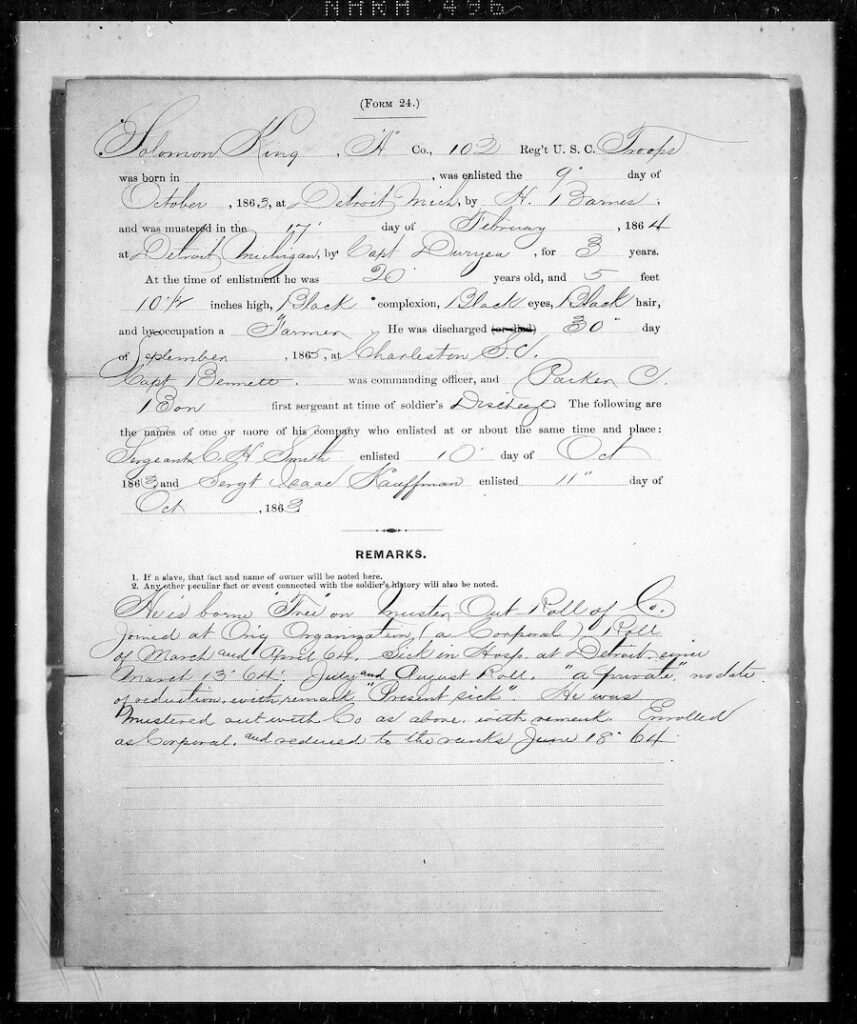
M2029 – Records of the Freedmen’s Branch, Office of the Adjutant General (1872–1878)
What Is M2029?
Film number M2029 refers to a collection of microfilmed records created after the official closure of the Freedmen’s Bureau in June 1872. While most Bureau offices had shut down, their work did not end completely. Instead, many of their responsibilities, particularly those related to African American soldiers and sailors, were transferred to the Freedmen’s Branch of the Adjutant General’s Office within the U.S. War Department.
M2029 covers the years 1872–1878 and represents a critical continuation of the Bureau’s mission. Unlike earlier Bureau records that dealt with food relief, schools, or local disputes, these files focus heavily on military claims, pensions, and benefits. This makes M2029 especially valuable for uncovering the service and postwar struggles of Black veterans and their families.
Why These Records Exist After the Bureau Closed
When the Freedmen’s Bureau was officially shut down in June 1872, thousands of unresolved military claims remained. To finish this work, the Freedmen’s Branch was established within the Adjutant General’s Office of the War Department in Washington, D.C.
At that point, the Bureau’s claim files, correspondence, and unfinished casework were transferred to the War Department. The Freedmen’s Branch organized these materials, added new petitions from veterans and their families, and created detailed registers, affidavits, and correspondence to manage the claims.
In effect, the Freedmen’s Branch became the “afterlife of the Freedmen’s Bureau” for military and pension cases. While the records were technically created under the War Department, they grew directly out of the Bureau’s unfinished work. This is why the National Archives groups them with Freedmen’s Bureau records; they represent the continuation of its mission, even though the Bureau itself no longer existed.
Many of the claims and petitions found in the Freedmen’s Bureau Records M2029 (1872–1878) stem directly from the service of U.S. Colored Troops (USCT) veterans. These files include requests for back pay, pensions, widows’ benefits, and dependents’ support, all tied to the sacrifices made by Black soldiers and their families. To better understand the role and legacy of the USCT, explore our dedicated U.S. Colored Troops page, where you’ll find historical context, research tools, and links to additional records.
Explore M2029 Records by State
“Hover over a county or parish to see its name, Microfilm Publication, and a description of the records available. Each county/parish contains one or more markers showing the locations of Freedmen’s Bureau field offices. Click a marker to open that office’s records page, where you’ll find links, context, and research tips. You can also use the Select: dropdown menu above the map to jump directly to a county or parish.”
- Freedmen’s Bureau Field Offices (placed by State / County)
- Freedmen’s Bureau Field Offices (placed by State / County)



